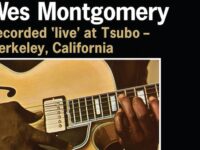You may know the story: In 1953, Charlie Parker and four other jazz musicians were booked for a date at Toronto’s prestigious Massey Hall. The quintet arrived from the States and played tunes featuring Bird and Dizzy Gillespie. The Toronto New Jazz Society sponsored and recorded the event, which also featured pianist Bud Powell, bassist Charles Mingus, and drummer Max Roach, who backed Parker and Gillespie, and played a separate trio set.
Since then, the tape of this night’s performance has been reissued numerous times. It’s considered a staple in the bebop canon. Bassist Mingus was unhappy with the tapes because the microphones had picked up very little of his instrument. This was ironic, since Mingus was responsible for getting the music recorded. He wanted to erase the tapes. Instead, it was agreed that Mingus would overdub his bass parts. These enhanced recordings were released later in 1953 on Debut Records.
The Massey Hall date has recently been reissued as Hot House: The Complete Jazz at Massey Hall Recordings. This latest version is uniquely useful since it allows the listener to hear the original recording, as well as the version with Mingus’ added bass overdubs. Either way, this is an important recording. Hot House is not high fidelity by modern standards but for fans of Charlie Parker and Dizzy Gillespie, it’s a musical touchstone. This would be their last recorded performance together.
The quintet blazes through “Perdido,” “Salt Peanuts,” “Hot House,” “A Night in Tunisia,” and a couple of others. It’s great, it’s historical, and you should have it in your collection – and maybe even listen to it now and then.
Overdubbing an instrument onto an existing recording has a long history, but the 1953 Massey Hall tape may be the first known example of this technology. By the early 1980s, Frank Zappa had acquired the rights to his albums made for the Verve label. He started preparing the early Mothers of Invention albums for compact-disc reissue. However, Zappa found that some of the albums’ master tapes suffered from sound deterioration. This audio decay especially impacted the bass. Zappa decided to dub a re-recorded bass line onto the existing tapes. He reissued We’re Only in It For the Money on CD with the recreated bass lines. Zappa initially said he liked the results, but many fans of the Mothers were unhappy. They complained that it sounded like what it was — a new bass part superimposed onto an older recording.
This leads back to the Hot House: The Complete Jazz at Massey Hall Recordings. The Craft Recordings label is wise to make both the unaltered and the dubbed versions available. As with Frank Zappa’s reconfigured Mothers’ album, both versions of the Massey Hall recording have validity since Mingus approved the re-recorded bass. This music deserves to remain available, and I’m glad this new Craft package is so carefully assembled.
This Hot House release makes me think about what might be done with other problematic recordings. Paul McCartney has received lots of press recently about a song called “Now and Then.” I hesitate to call it a new Beatles record, although it is being touted as one. Paul says artificial intelligence is the reason that a home recording by John Lennon could now be used. McCartney, Ringo Starr and George Harrison had worked on Lennon’s demo of “Now and Then” prior to Harrison’s 2001 death, hoping to release the song. They abandoned the project because Lennon’s vocal could not be separated from the sound of the piano on the tape, which also had a noticeable buzz. Both technical issues were insurmountable.
By using AI, Lennon’s voice can now be completely isolated from the piano, and the buzz has been eliminated. Separating the vocal allows use of the new instrumental backing played by Harrison, McCartney and Starr. Fine, I’m glad it worked – but let’s prioritize: Since McCartney is an advocate for AI, he should now use it to clean up the recently discovered 1963 performance by the Beatles at Roxburgh Hall in Stowe, England. If the vocals could be brought up in the mix, that set would be even more remarkable than it already is. And what about audio improvement on their Star Club recordings? Shea Stadium? And, although of lesser importance, I have always said I would pay to have Yoko Ono’s vocal mixed out of Lennon’s Live Peace in Toronto set. Now, there’s hope.
But I fear I’ve drifted. Hot House: The Complete Jazz at Massey Hall Recordings by Charlie Parker, Dizzy Gillespie, Bud Powell, Max Roach, and Charles Mingus is essential listening. I think Frank Zappa would agree. And Lennon is on record as singing that he’s “got no kick against modern jazz.”
- ‘Cold War Country,’ by Joseph M. Thompson: Books - December 2, 2024
- Acknowledging an Influence? Or Grounds for a Lawsuit? - August 9, 2024
- Dickey Betts’ Star Rose as the Allman Brothers Band Grieved - April 19, 2024



